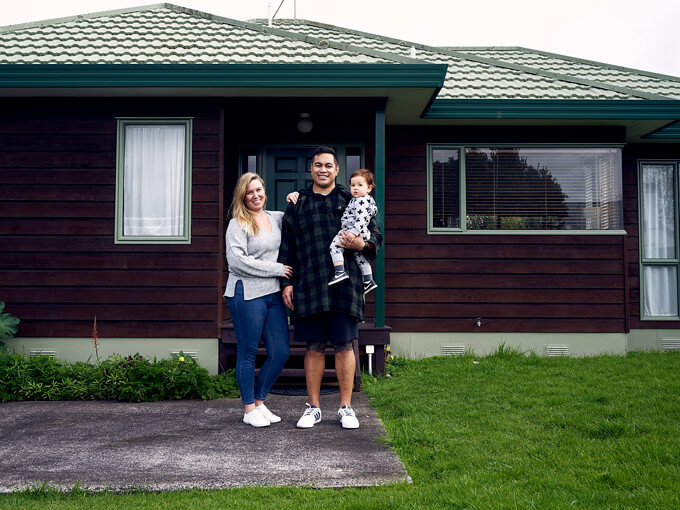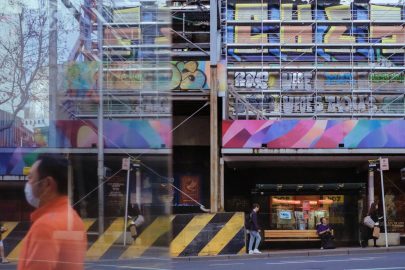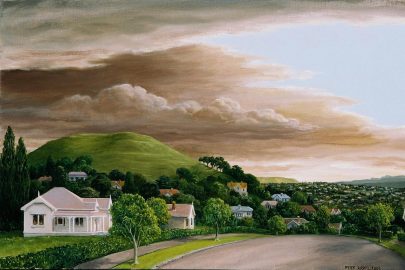Nov 7, 2019 Property
For those wanting to buy, the real estate market is an emotional rollercoaster – on the way up and on the way down.
You’ve wanted to get off the renting treadmill for years now, after the parade of cold, damp houses you’ve lived in with their ill-fitting windows and doors and mould on the bathroom ceiling. And there’s the landlord peering into your bedroom every few months to check you haven’t set up a P lab in the wardrobe. And always the threat that you might have to look for another rental at short notice if the owner decides to sell. Or maybe you suddenly have to look for somewhere else to live because the rent has just shot up by $150 a week.
But now, in mid-2019, your chance to be free from renting has arrived! You’ve somehow managed to save a decent deposit after years of scrimping and you know it’s a buyers’ market because the media tell you it is — even though the prices of houses that are deemed “affordable” are still at nose-bleed levels.
Interest rates are low — with the prospect of going even lower — and the mortgage payments won’t be that much more than the rent you are currently paying. Wise heads have warned that you need to take into account maintenance costs and council rates, too, but the sheer joy of having a home of your own makes the risk of even a large mortgage seem absolutely, if not absurdly, worthwhile.
What’s more, you suddenly need not be too hasty in deciding which suburb to live in or what style of house to buy after years of desperation in a wildly accelerating market. The Auckland market has been inching down since 2017 and there are no obvious signs of it taking off again. You’re safe at last! You can breathe! You can take your time! The panic has suddenly gone. The New Zealand Herald has stopped breathlessly telling you how an energetic citizen — possibly in a much-less-privileged social position than you — managed to buy their fifth house while working three jobs as a check-out operator and cleaner.
The run of those gung-ho articles peaked a couple of years ago but it feels just like yesterday that you had to confront the evidence of your own lack of drive and entrepreneurial spirit because you still hadn’t managed to enter the hallowed club of the heavily mortgaged homeowner.
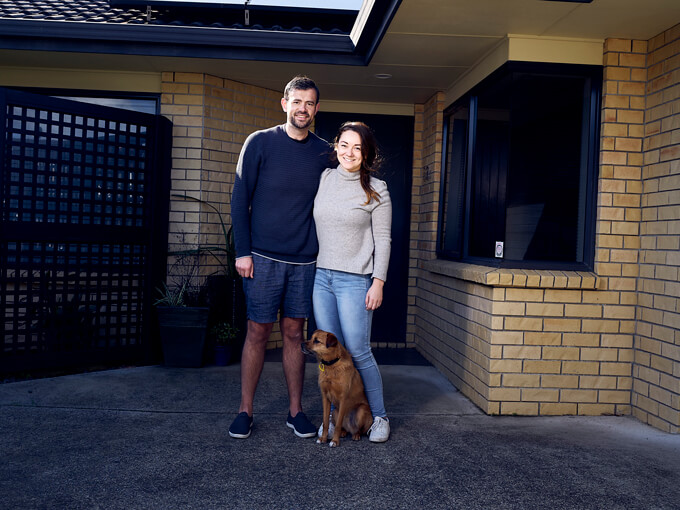
READ MORE: What’s wrong with our housing market? Generation Rent Revisited
So, you’re finally ready to beg the bank manager for a mortgage. But wait… what’s that? You see reports in the media that New Zealand and Canada’s real estate markets are the most vulnerable in the world to a house-price correction given that they are completely out of whack with historical relationships to rents and incomes. And the House Price Index, developed by the Reserve Bank and the Real Estate Institute of NZ, says Auckland values are down by 3.5% over the year to June. The Auckland Council’s District Valuation Roll, however, reckons the median value fell from $865,000 in April 2018 to $800,000 a year later. That $65,000 drop represents a 7.5% fall.
Suddenly you feel less certain that now is a good time to buy. Of course, it could be your best chance ever, and there are plenty of people, including real estate agents, who are saying just that. After all, the drivers of soaring house prices — high immigration, relatively easy credit, throttled land supply — are all intact. But you have a nagging fear… what say prices go on falling? The panic starts welling up in your stomach once again. What if you buy now and the houses and apartments you are keen on are $65,000 cheaper in a year’s time?
If you wait, you’d not only be better off by $65,000, but also by the amount of interest you would pay on that sum. According to the Sorted calculator, over the life of a 25-year mortgage, not borrowing $65,000 could mean saving more than $114,000 over 25 years. And, if you wait a year, you’ll have saved even more for a deposit, so maybe that will add up to a windfall of more than $125,000 just by delaying buying.
So, just when you’ve convinced yourself prices aren’t going to shoot up any time soon, you find yourself looking for reassurance that prices won’t drop any further either. After waiting so long, you don’t want to charge in and lose money. Not all the news is encouraging on that front. Even the nation’s biggest newspaper, the Herald, which has relentlessly goosed the Auckland housing market for years, has been obliged to report decidedly downbeat news from across the Tasman. Prices are taking a battering — down 14.9% in Sydney since the peak in July 2017 and 11.1% in Melbourne from November 2017. Perth (–19.2%) and Darwin (–29.5%) have done far worse.
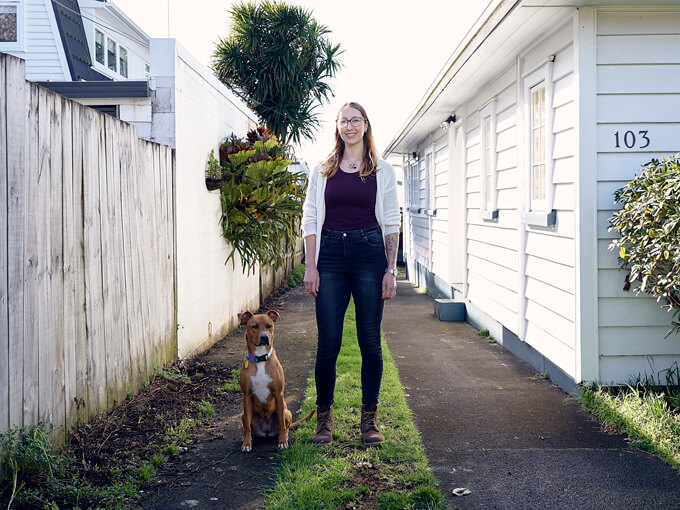
READ MORE: Onehunga, a suburb in flux
There are articles from real estate commentators in Auckland who insist it can’t happen here because the Australian and New Zealand markets are entirely different. That is self-evidently true, but you also know what widespread falls in Australia mean: the belief that house prices go only one way — straight up — has been shattered. The belief that prices are a one-way street is the most powerful idea in sustaining an accelerating house market. As long as that belief is dominant, it’s easy to persuade people that the only way to lose in the housing market is to not buy a house, no matter how much the mortgage payments might stretch you financially, socially and emotionally.
Even if you have to bail and sell because of sickness or shifting towns or going overseas, it doesn’t matter. You’ll still be better off having bought. In a roaring market, you can always sell at a profit — and possibly a huge one. Only mugs and losers aren’t willing to sacrifice everything they can to beg, borrow and steal enough for a deposit in a market that showers its beneficence on anyone who becomes a property owner.
But if double-digit falls can happen in big, cosmopolitan cities like Sydney and Melbourne, they can happen in Auckland, too. New Zealand’s biggest city has many, many virtues, but it can’t be said to be more desirable than living in Australia’s world-class metropolises. Suddenly, the housing landscape has changed. You realise it’s quite possible that the mugs will be those who have bought during the past few years in an overpriced market that now looks to be teetering. The folksy wisdom of the finance world flashes into your mind: “Never catch a falling knife.”
You start persuading yourself that the Government and the Reserve Bank won’t let house prices fall very far. The housing market is too big to fail; they simply won’t allow a crash similar to Japan’s in the 1990s or Ireland’s in 2009, when house prices in Dublin, for example, fell 56% from their peak. The housing market is way, way too important to employment and business confidence for the regulators to let it fall even a little way. And so you enter the zombie zone of the first-home buyer — terrified that prices will rise before you have had a chance to buy, but even more terrified they will drop once you have.
No one wants to be the mug who catches a falling knife. You don’t have to try that trick at home to know it really hurts.
READ MORE: Hope for homeownership: First home buyers share their stories
This piece originally appeared in the September-October 2019 issue of Metro magazine, with the headline “The agony and ecstasy of the first-home buyer”.

